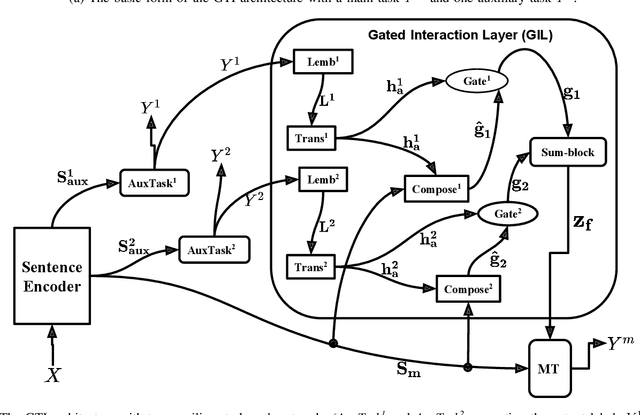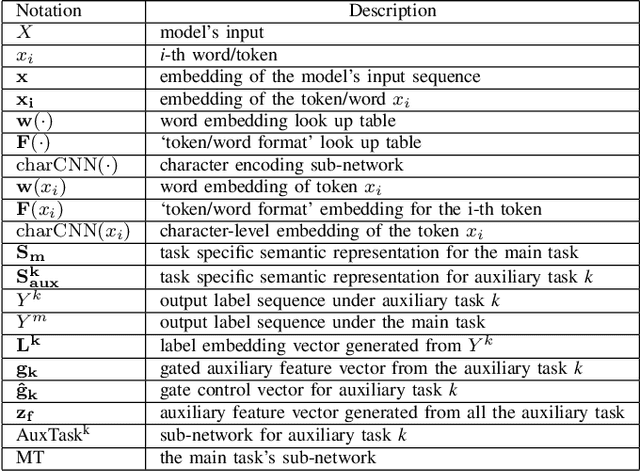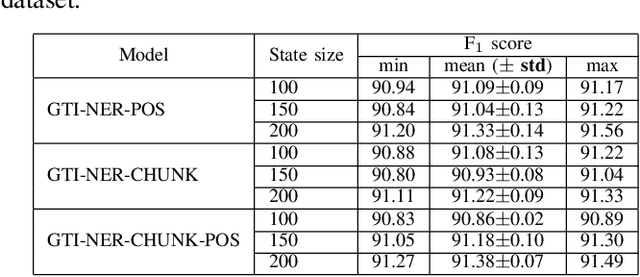Glenn Hawe
Gated Task Interaction Framework for Multi-task Sequence Tagging
Sep 29, 2019



Abstract:Recent studies have shown that neural models can achieve high performance on several sequence labelling/tagging problems without the explicit use of linguistic features such as part-of-speech (POS) tags. These models are trained only using the character-level and the word embedding vectors as inputs. Others have shown that linguistic features can improve the performance of neural models on tasks such as chunking and named entity recognition (NER). However, the change in performance depends on the degree of semantic relatedness between the linguistic features and the target task; in some instances, linguistic features can have a negative impact on performance. This paper presents an approach to jointly learn these linguistic features along with the target sequence labelling tasks with a new multi-task learning (MTL) framework called Gated Tasks Interaction (GTI) network for solving multiple sequence tagging tasks. The GTI network exploits the relations between the multiple tasks via neural gate modules. These gate modules control the flow of information between the different tasks. Experiments on benchmark datasets for chunking and NER show that our framework outperforms other competitive baselines trained with and without external training resources.
* 8 pages
 Add to Chrome
Add to Chrome Add to Firefox
Add to Firefox Add to Edge
Add to Edge